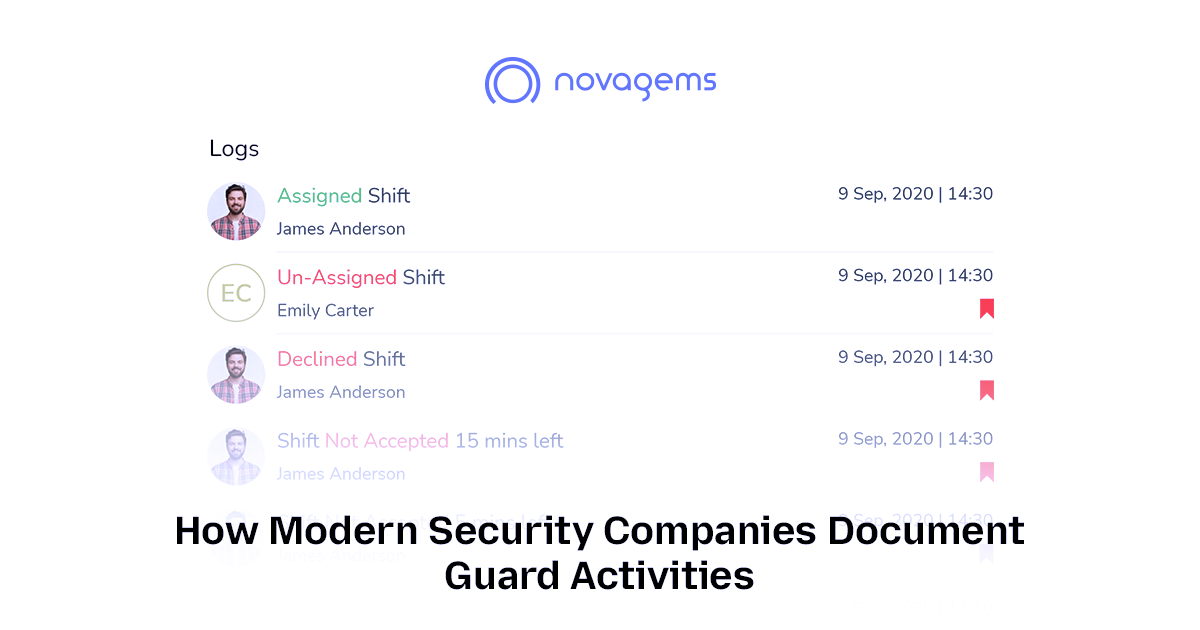Common Mistakes Companies Make When Managing the Security Workforce
Fri, May 2, 2025
Read in 6 minutes
Security companies must be efficient today to avoid common workforce management mistakes. Gone are the days of pen and paper for security service providers.

Managing a security team is a big job. It’s not just about placing security guards at doors or installing cameras. It’s about security workforce management—planning, people, tools, and smart decision-making. Many security companies want to keep their places safe, but they make mistakes that cause problems. These mistakes can lead to poor performance, low morale, and safety issues.
Let’s look at the top mistakes companies make in managing security personnel and how they can fix them.
Neglecting to Account for Human Behavior
One of the biggest mistakes in security workforce management is forgetting that security guards are people—not machines. They have strengths, weaknesses, and preferences. Some guards are good at working with people, while others prefer quiet locations. Some like working in the day, while others enjoy night shifts.
But many security services assign tasks without asking what their team members are good at. This can make guards feel unhappy and overworked. Over time, this leads to burnout or high turnover.
How to fix this:
- Talk to your security personnel and learn about their strengths and preferences.
- Match jobs with their skills—for example, a friendly guard could work at a front desk.
- Rotate shifts fairly.
- Show appreciation often, even just with a “thank you.”
When guards feel respected and understood, they do better work and stay longer.
Failing to Remove Mundane Tasks
Many security services make their guards do boring and repetitive tasks like writing reports by hand or logging patrols on paper. These jobs waste time and energy.
If a guard spends too much time doing paperwork, they might miss something important in their surroundings. This can lead to slower response times or even safety risks.
How to fix this:
- Use apps or systems that make reporting easier and faster.
- Let guards check in and log their activities using mobile devices.
- Get rid of paper-based systems where possible.
When your team has less busywork, they can focus on real security operations and keep the site safer.
Implementing Technology for Technology’s Sake
Sometimes, security companies buy fancy tools or software just to look modern. But they don’t ask if the technology is helpful for their specific needs.
If you install new tech but don’t train your team, they may feel confused. Or they may stop using the tools completely. That’s a waste of money and effort.
How to fix this:
- Only buy technology that solves real problems in your security operations.
- Choose tools that are easy to use.
- Train your team properly and get feedback before and after using new tools.
Technology should make your guards’ jobs easier—not harder.
Overlooking the Value of Data
Every day, security guards log shift times, file incident reports, and write patrol notes. That’s a lot of data. But many companies don’t do anything with it.
This data can tell you where problems are happening more often or if certain shifts are understaffed. Without looking at it, you’re missing a big chance to improve your security services.
How to fix this:
- Use software that collects and organizes data.
- Review reports weekly or monthly.
- Look for patterns and make smart choices using the data.
In security workforce management, data helps you plan better and fix problems before they grow.
Not Aligning Security with Corporate Goals
In many businesses, the security personnel work separately from the rest of the company. They are left out of big meetings or don’t know the company’s goals. This can lead to miscommunication and weak results.
For example, if a store wants to be friendly and welcoming, but the security guards act too seriously or coldly, it gives the wrong impression to customers.
How to fix this:
- Involve security personnel in team meetings and planning.
- Teach them how their work supports the company’s goals.
- Give training that matches both safety and customer experience.
When security services and business goals work together, both teams win.
Ignoring Security as an Important Business Function
Some businesses see security operations as just a cost. They try to save money by hiring fewer guards, skipping training, or using old tools. But bad security can lead to theft, injury, or lost customers.
Good security workforce management is an investment—it protects people, buildings, and the company’s reputation.
How to fix this:
- Respect and support your security guards like any other team.
- Give them proper tools, training, and pay.
- Understand the long-term value of strong security services.
When guards feel supported, they work better. When security is strong, the business is safer.
Not Offering Ongoing Training
The world changes fast. New threats pop up every year. But some companies train their security personnel only once—and never again.
Without updated training, guards may not know how to handle new risks like cyber threats or crowd control at events.
How to fix this:
- Offer training regularly—at least once or twice a year.
- Use real-world examples in your training.
- Keep learning fun and engaging, not boring.
Better training means better security operations.
Poor Communication
In some teams, guards don’t know what’s happening. They don’t get updates, or they don’t know who to talk to in emergencies. This leads to slow responses and confusion.
How to fix this:
- Use radios or mobile apps so guards can talk quickly.
- Set clear rules for who reports what—and when.
- Hold quick team check-ins at the start or end of each shift.
Good communication is key in any security company. It builds trust and keeps people safe.
No Emergency Plans
Many companies hope emergencies never happen—but they don’t plan for them. This is risky. Without a plan, people may panic or freeze when something serious happens.
How to fix this:
- Make simple emergency plans and teach them to all guards.
- Practice with drills for fire, theft, or medical issues.
- Keep emergency contacts and first aid kits in easy-to-find places.
Being ready can save lives.
Final Thoughts
Strong security workforce management doesn’t happen by luck. It takes effort, planning, and care. If you avoid these common mistakes, your security services will be more professional, more efficient, and more trusted.
Let’s recap the biggest mistakes:
- Forgetting that guards are people with unique needs
- Making them do boring tasks instead of focusing on safety
- Buying tech without a clear purpose
- Ignoring valuable data
- Keeping security separate from the company’s goals
- Seeing security as a cost instead of an asset
- Skipping regular training
- Not setting up good communication
- Having no emergency plan
When you fix these mistakes, your security company becomes stronger. Your guards feel respected, your clients feel safer, and your business grows.
Get a Free Trial
Sign up For Newsletter
Latest Blog Posts
Get Started
Start being productive & grow your business
with Novagems





